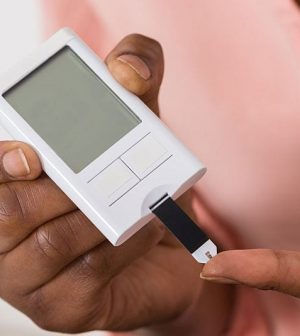- Could Your Grocery Store Meat Be Causing Recurring UTIs?
- Are You Making This Expensive Thermostat Error This Winter?
- Recognizing the Signs of Hypothyroidism
- 10 Strategies to Overcome Insomnia
- Could Artificial Sweeteners Be Aging the Brain Faster?
- Techniques for Soothing Your Nervous System
- Does the Water in Your House Smell Funny? Here’s Why
- Can a Daily Dose of Apple Cider Vinegar Actually Aid Weight Loss?
- 6 Health Beverages That Can Actually Spike Your Blood Sugar
- Treatment Options for Social Anxiety Disorder
Home Health-Care Tests: Proceed With Caution

Home pregnancy tests are commonplace, but that doesn’t mean that every type of self-test for health issues is reliable.
And even if results are accurate, you shouldn’t forgo getting advice from your health-care provider, especially if the condition is life-changing and requires very targeted treatment.
Some kits that let you test at home are fast and inexpensive. They can uncover problems before symptoms start, allowing for early treatment and lowering the risk of later complications. Others help you monitor your health.
Home glucose tests — one of the most common — show how well you’re controlling diabetes, but even these everyday tests require input from your doctor. So take precautions when using a home test, and remember that they don’t replace regular health-care visits.
The U.S. Food and Drug Administration considers home tests medical devices and, in light of this rapidly growing category, is working to set standards for the tests and establish rules on how to regulate them.
Many home tests are reliable, including those for hepatitis C and HIV.
But some are more problematic, like DNA tests — genetic testing for your own disease risk and for genes associated with disorders that could be passed on to a child.
Before you buy a store kit, look for the words “FDA-approved” on the package. Be sure to read any disclaimers to understand a test’s limitations and heed the advice to get health counseling for positive results.
And no matter what type of test you do, always discuss results with your doctor, even if you get a normal finding. Most results should be evaluated along with your medical history and a physical.
Also, many DNA home kits do not test for every possible genetic mutation, so you can get false negatives as well as false positives. Take your findings to your doctor and discuss whether more comprehensive testing will help you get more accurate answers.
More information
The FDA has a tool that allows you to find all approved home tests and information about them, including each test’s limitations.
Source: HealthDay
Copyright © 2026 HealthDay. All rights reserved.










